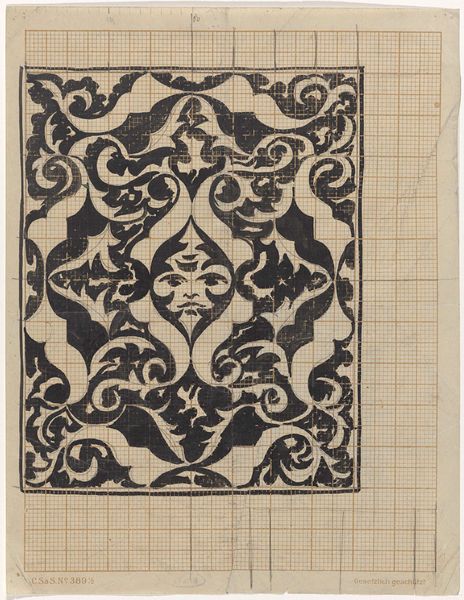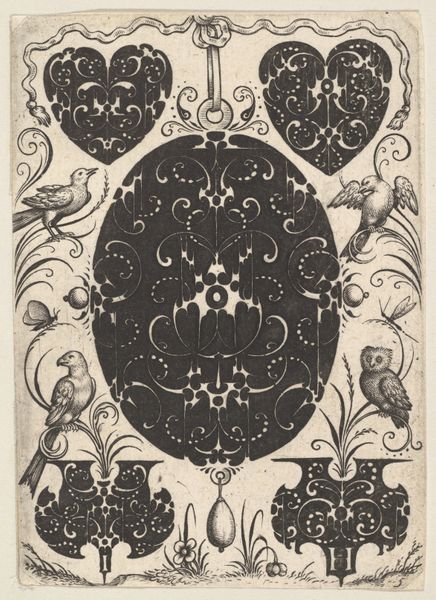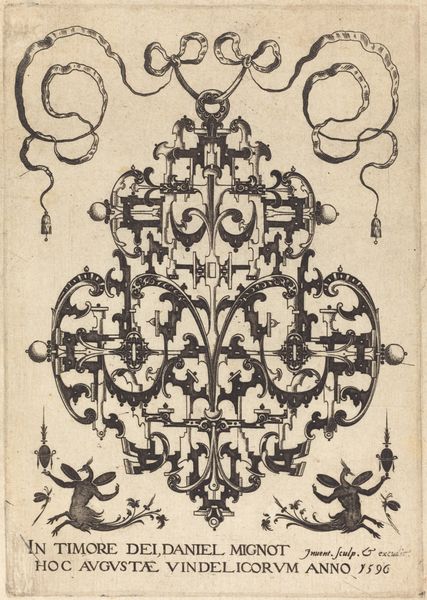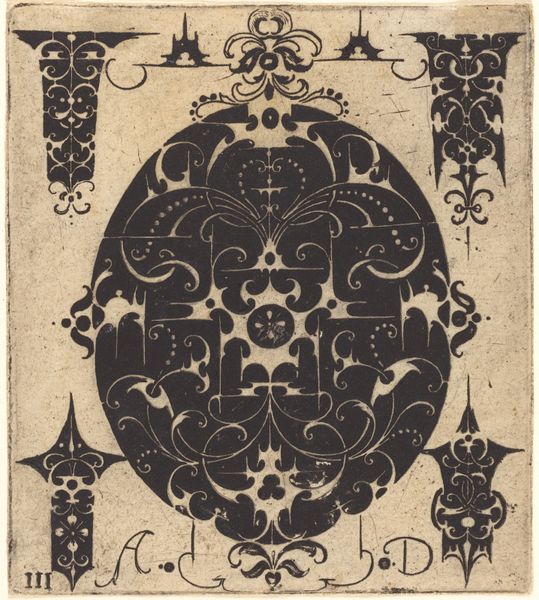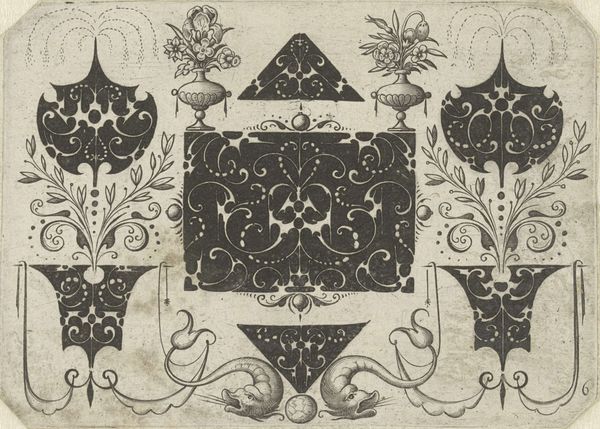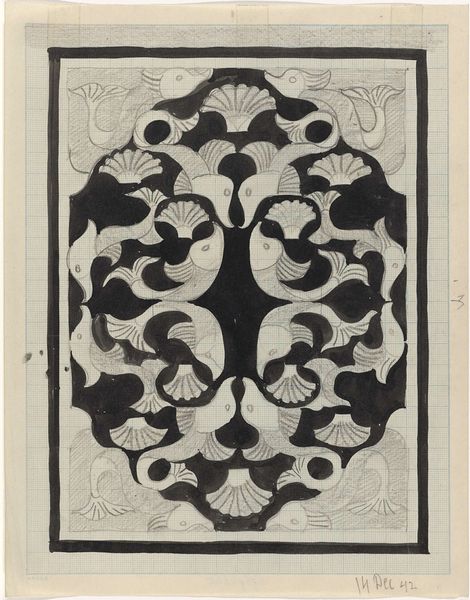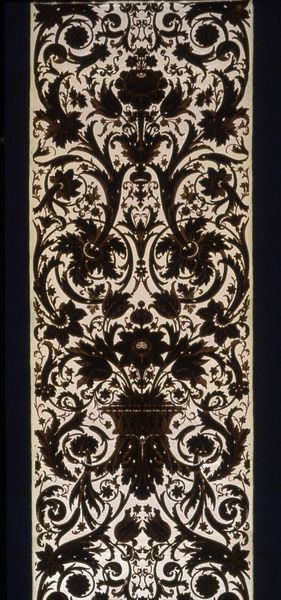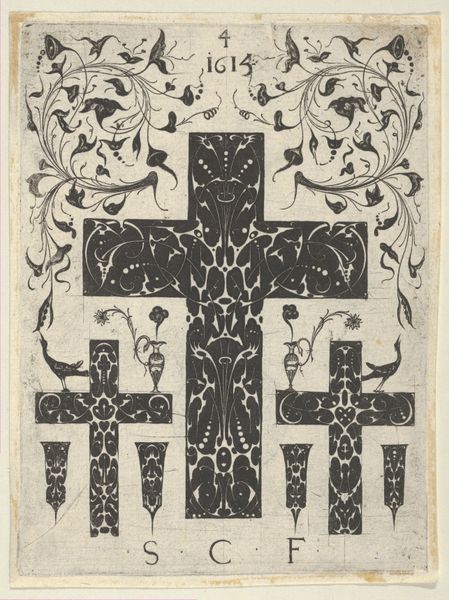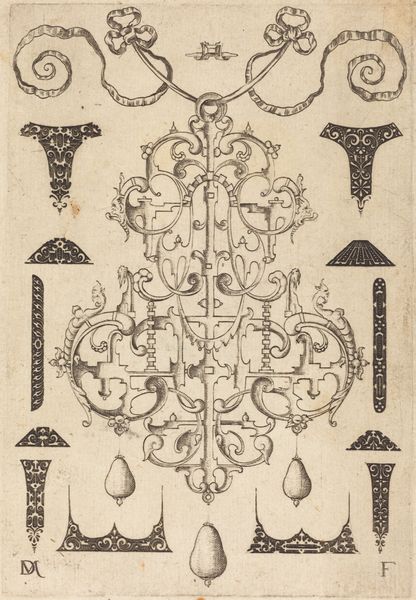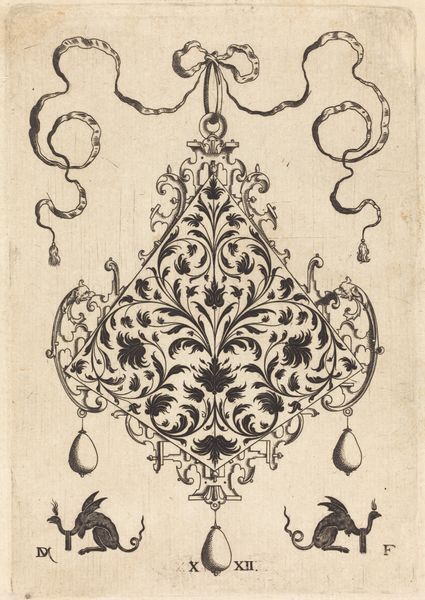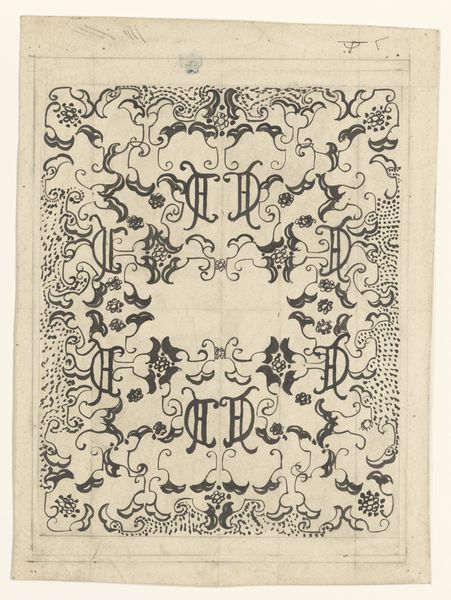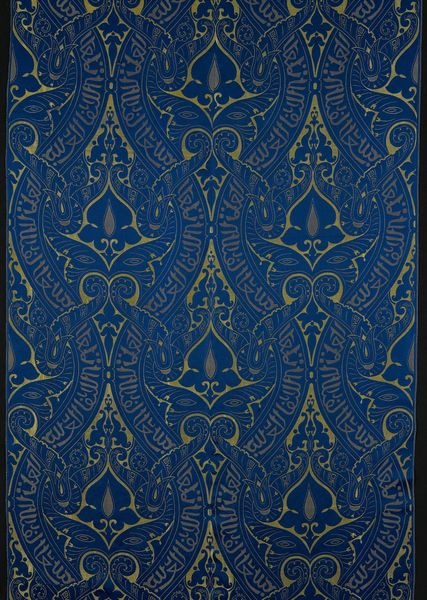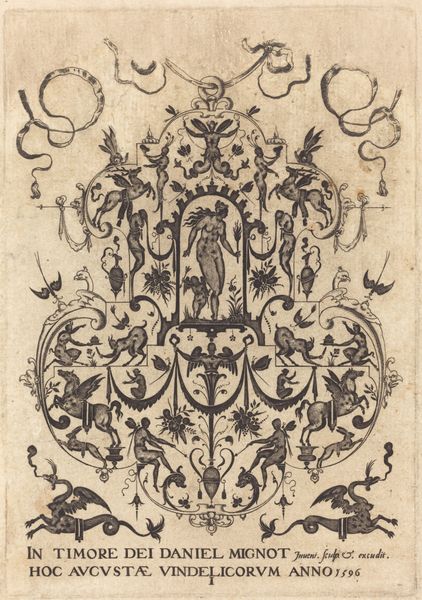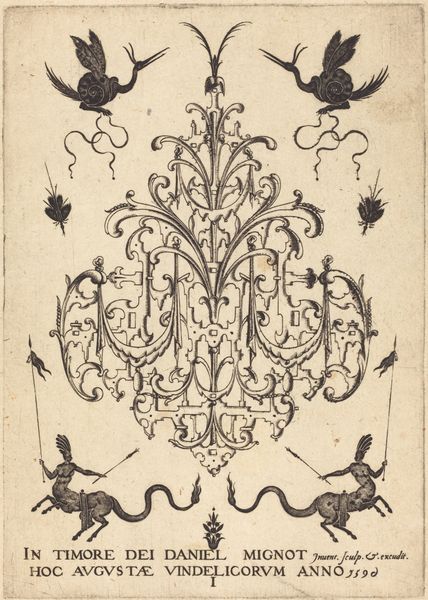
drawing, graphic-art, ornament, print, intaglio
#
drawing
#
graphic-art
#
ornament
#
baroque
# print
#
intaglio
#
pattern
#
organic pattern
#
geometric
#
intricate pattern
#
pattern repetition
Copyright: National Gallery of Art: CC0 1.0
Editor: This intaglio print, titled "Ornament," is attributed to Master AD and seems to exemplify the Baroque style. It’s mesmerizing. The dense patterning almost feels overwhelming. What do you see in this piece? Curator: Well, I see more than just a pattern. I see echoes of cultural memory. Look at the geometric shapes combined with those swirling organic forms. Doesn’t it evoke something primal, a need for order imposed onto the wildness of nature? Consider too, how prints like these circulated—what function might they have served? Editor: You mean, beyond just being pretty? Maybe as examples for other artists to copy? Or inspiration for craftspeople? Curator: Precisely! They were part of a visual language. These symbols carried meaning – ideas about wealth, status, even religious beliefs. Look at the central diamond motif, for instance. Think of playing cards – the suit of diamonds – wealth and power. The Baroque period favored ornamentation as a display. This becomes an expression, if not celebration, of power through dense, intricate pattern. Can you see that now? Editor: I can! So, it's not *just* decoration. Each flourish, each repetition of the motif is communicating something about the society that produced it. Curator: Exactly. Think of it as a visual DNA, carrying codes of cultural values. These repeated shapes also start to conjure thoughts of fractals – forms infinitely replicating in ever smaller instances. The visual language, embedded deeply in human awareness, comes alive to express something almost innate about wealth, privilege, the human drive for replication, order. Editor: That's fascinating. I went from seeing just a pretty pattern to a complex system of symbols carrying cultural weight. Thanks! Curator: My pleasure. It’s all about learning to read the image, recognizing how seemingly simple forms can hold complex meanings.
Comments
No comments
Be the first to comment and join the conversation on the ultimate creative platform.
